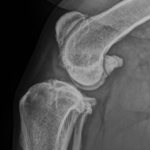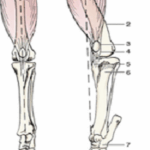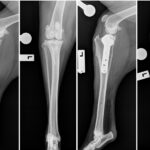
Cancer affecting a cat’s ear.
Does your cat have a sore on its ear that just won’t heal?
Sores on a cat’s ear can have many causes. It may be from injury, infection, allergies, insects or cancer.
Most of these causes are easily treated or clear up themselves quite quickly, and with appropriate treatment the ear should be back to normal within two weeks.
When a sore persists on an ear for more than two weeks, this is a sign that the cat may have a type of cancer called squamous cell carcinoma, a type of skin cancer.
White cats are particularly prone to this problem, with the ears and nose being the most commonly affected sights.
What should you do if your cat has a sore on its ear?
- If it looks like a cut or scratch, make sure it is clean and keep an eye on it. If the wound is not fully healed within two weeks or if it looks infected, vet attention is needed.
- If the ear is swollen or smells, take your cat to the vet as it may have an infection which requires antibiotics
- If the canal or inside of the ear is red or sore, your cat may have ear mites or a condition called otitis externa, which will require assessment by a vet as it can progress to a middle ear infection
- If the sore has been present for more than two weeks, please make an appointment to see your vet. This includes sores that look like they are almost healed then seem to get worse again – this is a red flag for cancer on the ear.
How do we treat these cancers?
Fortunately, early treatment gets very good results in most cases. Once the ear has been assessed and other causes (such as infection or allergies) ruled out, we will normally recommend surgery for the affected ear.
Squamous Cell Carcinomas are normally slow to spread but locally very invasive, which means that surgery can normally give a complete cure for the disease, but it needs to be done soon enough and “aggressively” enough. This means we will normally remove the entire pinna (the bit of the ear that sticks out). This surgery can normally be done as a day surgery with the cat going home that night. 10-14 days post-surgery the sutures are removed and the cat goes back to a normal, healthy life. This sort of surgery has very little effect on their hearing so apart from a more streamlined head, they continue to live a normal, happy life.
If you are concerned that your cat may have a cancer on its ear, please contact your vet for assessment and treatment. There’s every chance they can cure your cat and return them to full health.
Dr Braden Collins has undertaken additional study in Oncology (Cancer Treatment) and Surgery through the University of Sydney. Dr Collins works at the Eaton Vet Clinic Tuesday – Thursday. To book an appointment with Dr Collins, please phone 97250399



